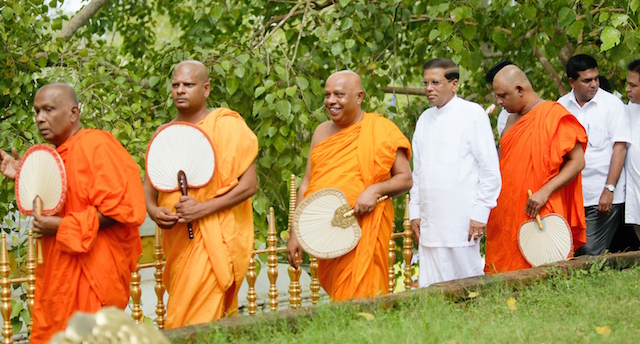New Constitution: State, Religion & Buddhism

By Mass L. Usuf –July 14, 2016
Buddhism, Religion Or Not?
Article 9: “The Republic of Sri Lanka shall give to Buddhism the foremost place and accordingly it shall be the duty of the State to protect and foster the Buddha Sasana, while assuring to all religions the rights granted by Articles 10 and 14(1)(e).”
There is a vague and ambiguous reference to one word in Article 9, namely, ‘Buddhism’ in contradistinction to ‘religion’. It is vague because it is not clear if Buddhism is used here synonymous with religion. This lack of clarity creates ambiguity in its definition. Simply put, as per Article 9 is Buddhism a religion or not?
The concern is that there is neither an interpretation clause nor an explanation in the constitution on this word. The legislators apparently would have relied upon the popular or customary understanding that Buddhism is a religion. The Sinhala word used commonly is buddhagama possibly influenced by Christianity, Islam and Hinduism which are religions and referred to as ‘agama’ in the Sinhala language. ‘Agama’ means religion. It is suspect if this assumption or understanding in relation to Buddhism is correct.
When it comes to legal interpretation what would direct the judicial mind, is to be seen. The judiciary can take the plain text meaning or the intention of the author (legislature) or give a pragmatic interpretation based on the true meaning of Buddhism. The last of the three may find the judiciary being criticised for judicial law making. Some inspiration could be had from Lord Wilberforce in the Privy Council who adopted the approach treating the constitution as sui generis, calling for principles of interpretation of its own suitable to its character. (Minister of Home Affairs (Bermuda) vs. Fishers (1980).

In this context, the new constitution is a good opportunity for the framers to give thought to this without putting the judiciary on the spot. Since the constitution is the foundational law of the State its content in my view, should bear the essence of the thing that is being interpreted.

